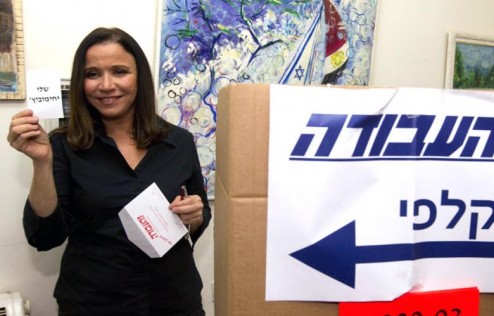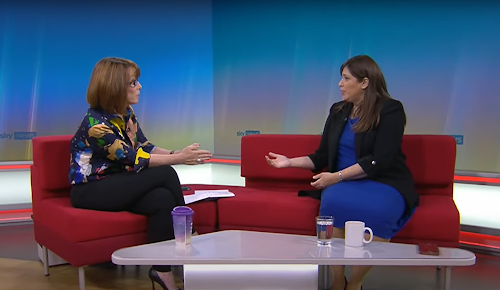
Back in 2006 I linked to a Haaretz interview (unfortunately no longer online) with Shelly Yachimovich, then a new Knesset member for the Labor party.
As I wrote:
Yachimovich, a former radio interviewer, entered politics to support Amir Peretz’s successful campaign for Labor Party leader– a campaign that emphasized issues of social and economic injustice within Israel. Peretz ended up serving as defense minister in Ehud Olmert’s coalition government, and has taken a lot of criticism for his handling of the recent war with Hezbollah.
Well, as is usual in Israeli politics, almost everything has changed over the course of a few years.
–Ehud Olmert (of the Kadima party) was replaced as prime minister by Benjamin Netanyahu of Likud.
–Amir Peretz was replaced as Labor party leader by former prime minister Ehud Barak, who took Labor into the governing coalition with Likud and became defense minister.
–Early this year Barak split from Labor and formed a new party, called Atzmaut, with four other Labor Knesset members. The remaining Labor Knesset members, including Yachimovich and Peretz, took Labor out of the coalition. Yachimovich called Atzmaut the “Akirov faction,” a reference to Barak’s residence in the ultra-luxurious and ultra-expensive Akirov apartment complex in Tel Aviv. Former kibbutznik Barak seems to have developed a taste for the high life. (Atzmaut almost certainly will win no seats in the next election, and will go the way of so many other Israeli political parties.)
–Yachimovich this month challenged her former mentor Peretz and two other candidates to win the Labor leadership in a vote by party members.
What’s refreshing and encouraging about Yachimovich is that, as she said in 2006, “I don’t want to walk the same furrow that is being plowed by a thousand people besides me.” That is, while most leading Israeli politicians focus on matters of security and foreign policy, Yachimovich has devoted most of her time and energy to issues of social and economic justice and workers’ rights. Her often-unheralded efforts have produced a number of victories for ordinary Israelis. She proudly calls herself a social democrat, and she links social justice to Zionism: “Zionism, for me, is social cohesion and the state’s responsibility for all segments of the society…” In 2006 she called the Olmert government’s rightwing economic policies “post-Zionist.”
So when hundreds of thousands of Israelis took to the streets this summer to call for more social and economic equality, it appeared Yachimovich was ahead of the political curve.
Last month Haaretz published a long and revealing interview with Yachimovich, in which she managed to upset a number of Israeli leftists by saying, among other things, “I certainly do not see the settlement project as a sin and a crime.” And she said: “I see the Zionist enterprise as one of the most moral and just projects, I would say, in human history.”
Haaretz writer Ari Shavit, who conducted the rather contentious interview with Yachimovich in 2006, wrote:
Some people criticized Yachimovich for not focusing enough on foreign affairs, for not being dovish enough and for not parroting the cliches of peace. Shelly Yachimovich should not have said what she said about the settlements. It would have been better had she spoken more assertively on diplomatic issues. But if Yachimovich has a real chance to make real peace, she will do so. Precisely because she does not hate settlers, she will do well at evacuating them.
It appears Yachimovich’s election as Labor leader has already had a dramatic effect; after years of decline under Barak, Labor has moved ahead of Kadima to become Israel’s second most popular party after Likud.


